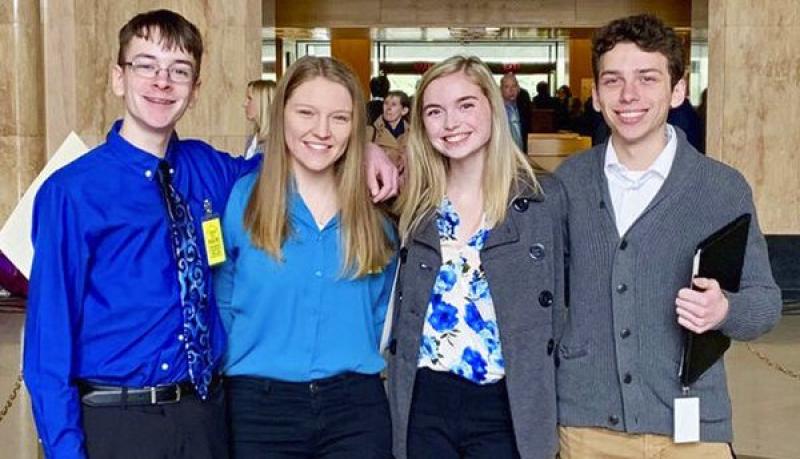Teen activists win excused mental health days for Oregon students



Oregon will allow students to take “mental health days” just as they would sick days, expanding the reasons for excused school absences to include mental or behavioral health under a new law that experts say is one of the first of its kind in the U.S.
Don’t call it coddling, the students behind the measure say. Allowing mental health days is meant to change the stigma around mental health in a state that has some of the United States’ highest suicide rates. Mental health experts say it is one of the first state laws to explicitly instruct schools to treat mental health and physical health equally, and it comes at a time educators are increasingly considering the emotional health of students. Utah passed a similar law last year.
Oregon's bill, signed by Gov. Kate Brown last month, represents one of the few wins for youth activists from around the state who were unusually active at the Capitol this year. Along with expanded mental health services, they lobbied for legislation to strengthen gun control and lower the voting age, both of which failed.
Haily Hardcastle, an 18-year-old from the Sherwood, said she and other student leaders were partly motivated by the national youth-led movement that followed last year’s Parkland, Florida, school shooting.
"We were inspired by Parkland in the sense that it showed us that young people can totally change the political conversation," she said. "Just like those movements, this bill is something completely coming from the youth."
Hardcastle, who plans to attend the University of Oregon in the fall, said she and fellow youth leaders drafted the measure to respond to a mental health crisis in schools and to "encourage kids to admit when they're struggling."
Debbie Plotnik, executive director of the nonprofit advocacy group Mental Health America, said implementing the idea in schools was important step in challenging the way society approaches mental health issues.
"The first step to confront this crisis is to reduce the stigma around it," Plotnik said. "We need to say it's just as OK to take care for mental health reasons as it is to care for a broken bone or a physical illness."
Suicide is Oregon’s second leading cause of death among those ages 10 to 34, according to data from the Oregon Health Authority. Nearly 17% of eighth-graders reported seriously contemplating taking their lives within the past 12 months.
Previously, schools were obliged to excuse only absences related to physical illnesses. At many schools, absences must be excused to make up missed tests or avoid detention.
Under state law, students can have up to five absences excused in a three month period. Anything more requires a written excuse to the principal.
Despite little public opposition from lawmakers, Hardcastle said she's received pushback from some parents who say the legislation wasn't necessary, as students can already take mental health days by lying or pretending to be sick. Other opponents have said the law will encourage students to find more excuses to miss school in a state that also suffers from one of the worst absenteeism rates in the nation. More than 1 in 6 children missed at least 10% of school days in the 2015-2016 school year, according to state data.
But those criticisms miss the point of the bill, said Hardcastle. Students are going to take the same amount of days off from school with or without the new law, but they might be less likely to lie about why they're taking take a day off if schools formally recognize mental health in their attendance policies.
Tags
Who is online
80 visitors

If that is true, the society is doing something wrong somewhere.